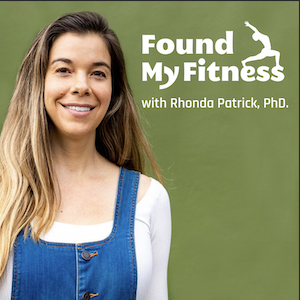This Is the Best Type of Exercise for Improving Blood Pressure - Sports Cardiologist
Get the full length version of this episode as a podcast.
This episode will make a great companion for a long drive.
The Omega-3 Supplementation Guide
A blueprint for choosing the right fish oil supplement — filled with specific recommendations, guidelines for interpreting testing data, and dosage protocols.
Dr. Benjamin Levine has demonstrated that the right exercise regimen can reverse up to 20 years of heart aging, even in those who have been sedentary for most of their lives. As one of the world's foremost experts on how the heart adapts in various conditions—ranging from exercise and elite athleticism to prolonged bedrest—Dr. Levine's insights are groundbreaking.
In this video, he discusses:
- The best type of exercise for improving blood pressure (and why)
- His thoughts on a 2023 study that demonstrated isometric exercises (ex: planks, wall sits) are most effective for lowering blood pressure
- Can lifestyle strategies actually reverse hypertension?
- His top lifestyle recommendations for lowering blood pressure
Member only extras:
Learn more about the advantages of a premium membership by clicking below.
Get email updates with the latest curated healthspan research
Support our work

Every other week premium members receive a special edition newsletter that summarizes all of the latest healthspan research.
Blood pressure News
- Nitrate-rich beetroot juice lowered blood pressure in older adults by altering oral microbiome composition.
- Sex-specific differences in kidney function and related proteins may explain how sodium and potassium intake affect blood pressure differently in men and women.
- Strawberry consumption boosts thinking speed and lowers systolic blood pressure by 3% in older adults.
- The combined effects of hypertension, diabetes, and smoking may accelerate brain aging, with hypertension being the most significant predictor of structural decline.
- A daily dose of coenzyme Q10—100 milligrams or less—reduces blood pressure by about 4mmH systolic and 3mmHG diastolic in people with type 2 diabetes, potentially lowering cardiovascular risk.






